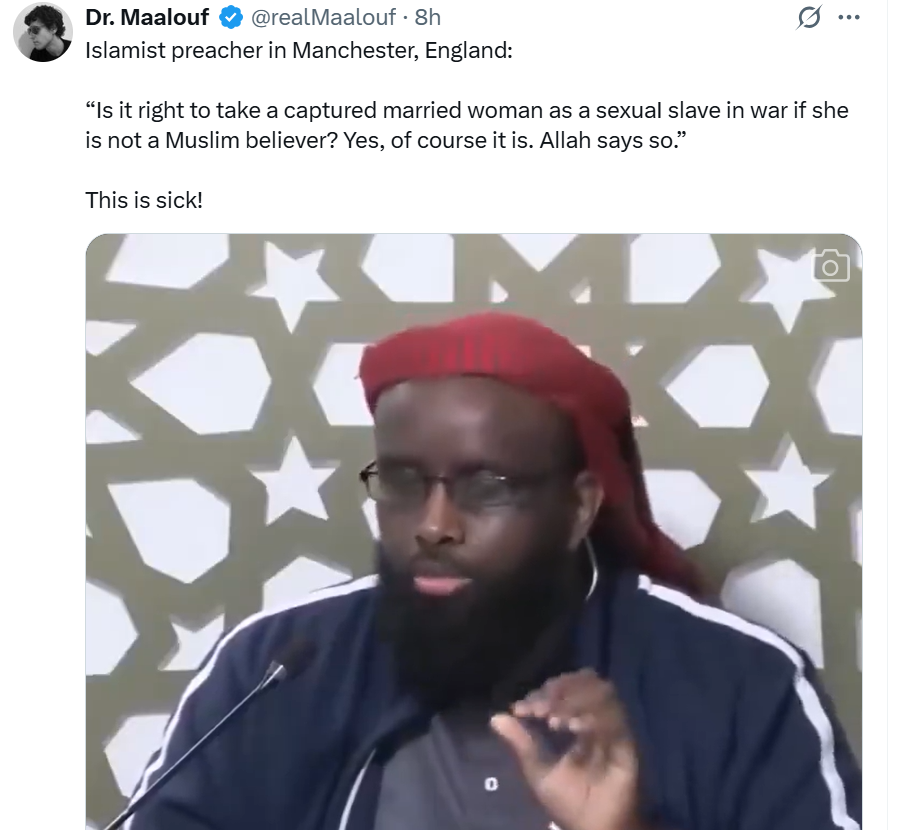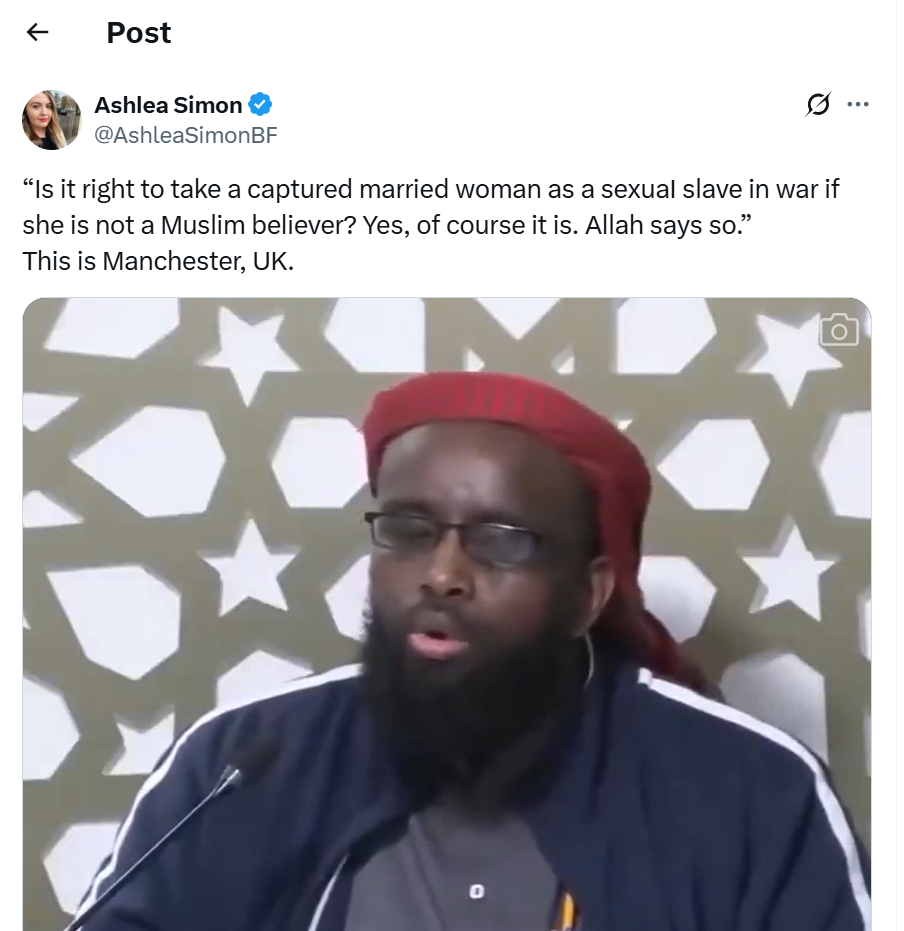
This kind of extremist ideology represents a radical and fringe interpretation of islam, rejected by the vast majority of Muslims around the world. Mainstream Islamic scholars and institutions have repeatedly condemned slavery and sexual violence, stressing that such practices have no place in contemporary Islam.
 However, when preachers make such inflammatory claims in public forums, they fuel fear and distrust among communities and embolden Islamophobic sentiments. It becomes essential to distinguish between a religion practiced by over a billion people and the actions of extremists who manipulate its teachings for their own agendas.
However, when preachers make such inflammatory claims in public forums, they fuel fear and distrust among communities and embolden Islamophobic sentiments. It becomes essential to distinguish between a religion practiced by over a billion people and the actions of extremists who manipulate its teachings for their own agendas. Authorities must respond swiftly and decisively when hate speech crosses into incitement of violence or violation of public safety. The UK has laws in place to prevent radicalization and the spread of extremist ideology, and these laws should be enforced consistently. At the same time, the broader Muslim community, interfaith leaders, and civil society must also actively reject and distance themselves from such views. Doing so not only protects the integrity of their faith but also reinforces a shared commitment to universal values of human rights, respect, and coexistence.
Authorities must respond swiftly and decisively when hate speech crosses into incitement of violence or violation of public safety. The UK has laws in place to prevent radicalization and the spread of extremist ideology, and these laws should be enforced consistently. At the same time, the broader Muslim community, interfaith leaders, and civil society must also actively reject and distance themselves from such views. Doing so not only protects the integrity of their faith but also reinforces a shared commitment to universal values of human rights, respect, and coexistence.




 click and follow Indiaherald WhatsApp channel
click and follow Indiaherald WhatsApp channel